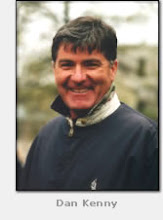

A major league baseball general manager named Frank Lane used to say that the best trade is often the one that you don’t make.
That motto certainly applied to the chain of events which led to the purchase of champion sprinter Speightstown. I was buying yearlings at the 1999 Keeneland July Sale on behalf of Canadian newcomer Eugene Melnyk. He liked his advisers to name a horse each day that he “must have”. I nominated a colt by Gone West out of a champion mare in Canada named Silken Cat (Hip 185).
Melnyk rang up from his home in Barbados with instructions to bid on Hip 167, a Gone West filly out of stakes-winner Miraloma. She was not especially striking physically but the filly figured to draw some action with a star-studded family that included sprint champions Gold Beauty and Dayjur. Worth maybe a million, I figured.
Spirited bidding quickly drove the price up on 167 and I broke out in a sweat when Melynk said make it $2.7 million. Thank heavens a bid rang out at $2.8. “What do we do now?”asked the voice on the phone.”
“Get out of Dodge is what we do now,” I countered. “You have a horse coming in about a half-hour who really is worth $2 million. Forget about this one.”
Speightstown strolled in a few minutes later and was the cynosure of all eyes. Bidding was fierce once again and we managed to acquire the horse for $2 million. I have no doubt that we would not have had the green light for two multi-millionaire yearlings nearly back-to-back.
The Miraloma filly became an expensive dud who never raced while Speightstown’s value was north of $l0 million after his brilliant Breeders’ Cup Sprint cinched a championship for him, not to mention some $1.2 in purses.
Dividends continue to flow from Speightstown’s first crop which last week included four stakes-winners, including a Gr I in France, a Gr 2 in New York and two more in the US.
They run very fast, that’s a given, but they are winning in top company at a mile, on turf, on dirt, poly, you name it.
That’s how a professional bloodstock agent serves his client.
As for Frank Lane, I have still not forgiven him 50 years after he traded Rocky Colavito from the Cleveland Indians to the Detroit Tigers for Harvey Kuenn
